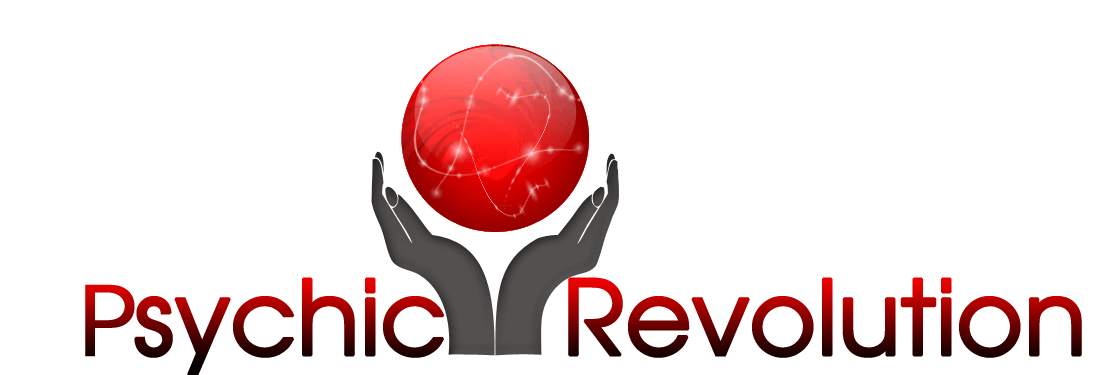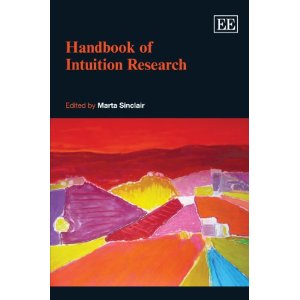While the first few sections may not immediately appear to be relevant to parapsychology, as with a lot of parapsychological books the research emanates from within many other disciplines. I have not been able to find out who the main contributors are but I would think there would be one or two practising parapsychologists on the list.
It seems the term intuition is the ‘new black’ in academic research and elsewhere and I seem to be encountering the word at every turn.
So, what is the actual definition of intuition? It would appear each of the contributing authors put their own definition in place but according to Wikipedia ‘Intuition is the ability to acquire knowledge without inference or the use of reason’.
Handbook of Intuition Research
The blurb for the book, released August 2011 reads:
This groundbreaking interdisciplinary Handbook showcases the latest intuition research, integrated in a framework that reconciles various views on what intuition is and how it works. The internationally renowned group of contributors presents their findings in five areas.
Part I explores different facets of the intuiting process and its outcome, the role of consciousness and affect, and alternate ways of capturing intuition.
Part II deals with its function in expertise, strategy, entrepreneurship, and ethics.
Part III outlines intuitive decision making in critical occupations, legal profession, medicine, film and wine industry, and teaching.
Part IV pushes the boundaries of our current understanding by exploring the possibility of non-local intuition (1), based on the principles of quantum holography (2) (my highlighting).
Part V investigates new techniques for developing intuitive skills. This cutting-edge, comprehensive Handbook will prove essential for academics and research students of social sciences, particularly management, psychology, sociology, entrepreneurship, leadership, team dynamics, HR and training. It will be also an invaluable resource for industry professionals searching for soft-core methods to increase productivity and creativity/innovation, to improve leadership and organizational climate, or to adopt new staff training and development methods.
And now for the bad news, the cost! As it is an academic tome, destined for library shelves etc no surprise the cost is 110 pounds or $200+
Anyone starting a Xmas Wish List?
Beginning the Discussion
(1) One academic definition of Nonlocal Intuition is:
the perception of energetically encoded information about a future event by the body’s psychophysiological systems, which informs decision and action; this information is not based on reason or memories of prior experience.
Layperson’s interpretation: yes some people at some times are able to either predict the future or influence its outcome – I just love the possibilities this engenders, don’t you?
(2) Quantum Hologram
What is Quantum Hologram and have we any chance of understanding it?
The following definition is taken from the abstract of the article Nature’s Mind, listed below.
We present a new model of information processing in nature called the Quantum Hologram which we believe is supported by strong evidence. This evidence suggests that Quantum Hologram is also a model that describes the basis for consciousness. It explains how living organisms know and use whatever information they know and utilize. It elevates the role of information in nature to the same fundamental status as that of matter and energy. We speculate that Quantum Hologram seems to be nature’s built-in vast information storage and retrieval mechanism and one that has been used since the beginning of time. This would promote Quantum Hologram as a theory which is basis for explaining how the whole of creation learns, self-corrects and evolves as a self-organizing, interconnected holistic system.
I don’t purport to understand this research at a deep level but intuitively it feels like we are moving in the right direction.
Continue the Discussion below
Leave your thoughts and insights.
For further reading
Nature’s Mind: the Quantum Hologram by Edgar Mitchell (yes, that Edgar Mitchell, as in 6th Man on the Moon)
The Quantum Hologram And the Nature of Consciousness (Journal of Cosmology, no less)







Hello,
My name is Steve. I just had a question pertaining to intuition research. I’m curious to know if anyone is aware of any research that involves intuition, sensory deprivation, heightened emotions, theta brain waves along with ECG and EEG monitoring.
Why sensory deprivation? No physical stimuli and effortless relaxation helps to lower brain waves for people who are not experienced meditators.
Why heightened emotions? I’m pretty sure you could probably tell me more about the correlation between intuition and emotions.
Why theta brain waves? Remaining conscious is key. The delta range is too low for conscious awareness.
Why ECG/EEG monitoring? There has to be a way to monitor the heart and brain activity in order to maintain the theta level of activity.
I’m currently researching an idea for an experiment and would love any feedback anyone can offer.
Hi Steve
Lets see what others come up with but in the meantime can you give me some idea whether your research is personal or academic and who else you have contacted for leads.
Cheers
Rosemary
It’s definitely personal and it’s obvious to me that it’s a huge part of my calling. No matter how much I stray I keep coming back to intuition. I’ve asked many around the internet about intuition research mainly parapsychologist and they all pretty much ask the same things you’ve asked; is this personal or academic research. The whole point is to investigate what conditions/environments best promote intuitive accuracy and I “feel” that sensory deprivation helps to create the best conditions for one to be more intuitive.
Hi Steve
Had to read back a bit to remember our earlier conversation.
Are you pursuing this at an academic level? Have you contacted any academics?
Cheers
Rosemary
Thanks for passing on this information, Rosemary. It seems to me that the book is overpriced in the extreme, especially when there has been so much research on intuition already, so many of us already know that intuition is a practical part of life, so many of us already know how to use our intuition, and that those of us who don’t already know this can learn from some excellent books on the subject already published (and considerably more reasonably priced). It’s the price that I have an issue with. Perhaps, since it is an academic tome, the authors consider it better than any other book on the subject. Could they be out to make a buck? It seems they also think that scientific “proof” is needed to validate intuition. Perhaps other business people and academics who are all in their heads will find this book valuable. You can tell how I feel about it.
Nancy
I agree this is a high priced book but as it is aimed at academia, and presumably a small group of researchers I guess this is to be expected.
Unfortunately, I just checked on Amazon and still there is not an ebook version on offer….so many publishers are behind the times when it comes to maximising marketing and sales avenues….but that is a different story.
All the best Nancy.
R